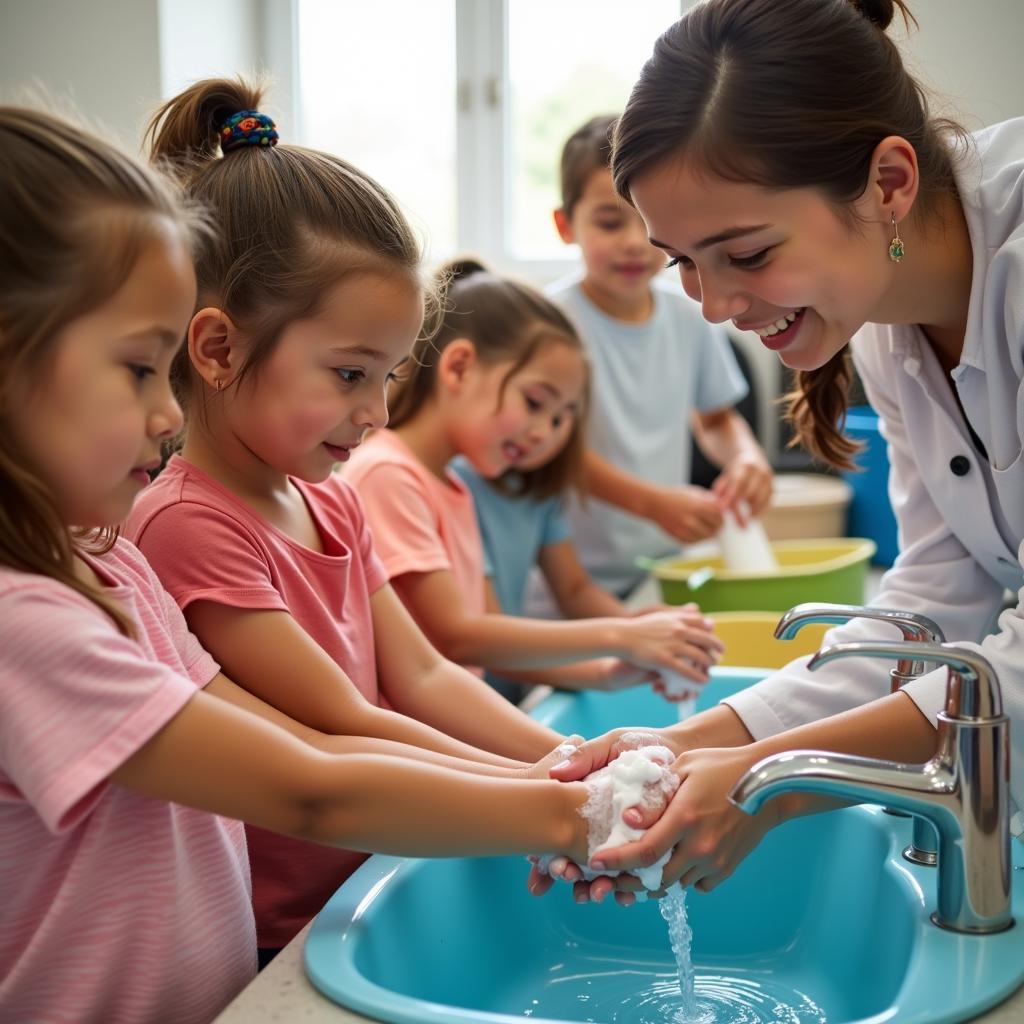My grandmother used to say, “Teeth and hair are the cornerstones of a person.” This seemingly simple saying contains invaluable lessons about personal hygiene, lessons we need to teach children from a young age, especially during preschool – the golden age for habit formation. Personal hygiene not only helps children stay healthy and prevent diseases but also contributes to character development, helping them become more confident in communication. Do you know how to effectively educate preschoolers about personal hygiene? Let’s explore it together! See more about personal hygiene plan in preschool.
The Importance of Personal Hygiene Education for Children
Personal hygiene plays a crucial role in a child’s overall development. It’s like building a solid foundation for a house, helping children have good health and prevent many common infectious diseases at this age, such as hand, foot, and mouth disease, diarrhea, respiratory infections, etc. Moreover, when well-educated about personal hygiene, children will develop good habits, independence, discipline, and a sense of responsibility for themselves.
 Adults teaching preschoolers about personal hygiene
Adults teaching preschoolers about personal hygiene
Methods to Educate Preschoolers About Personal Hygiene
Educating preschoolers about personal hygiene needs to be done gently, skillfully, and appropriately for their age psychology. We can use the following methods:
Learning through play:
Children learn best through play activities. Use games, songs, stories, and vivid illustrations to teach children about personal hygiene steps such as hand washing, teeth brushing, and bathing. Ms. Nguyen Thi Lan, a preschool education expert in Hanoi, shared in her book “Japanese-style Child Rearing”: “Turn personal hygiene into a fun activity, and children will consciously do it without reminders.”
Setting an example for children:
Children often imitate adults, so parents and teachers need to set an example for children in maintaining personal hygiene. “Children look at adults’ actions, not their words,” affirmed Mr. Tran Van Nam, a psychologist in Ho Chi Minh City.
Encouragement and motivation:
Praise and encourage children whenever they perform personal hygiene well. This will help children feel proud and motivated to continue maintaining good habits. See preschool personal hygiene video.
Repetition:
Habit formation takes time and persistence. Be patient in guiding and reminding children to perform personal hygiene steps regularly, repeatedly until they become proficient and self-aware. According to folk wisdom, “Constant dripping wears away the stone,” perseverance will bring good results.
Frequently Asked Questions:
- How to teach children to wash their hands properly?
- How many times a day should children brush their teeth?
- What type of soap should be used for preschoolers?
See more about personal hygiene propaganda for preschoolers and Hoa Mai Kindergarten in Go Vap District.
I remember a little boy who was very afraid of water; every bath was a battle with the whole family. But then the teacher skillfully used toy animals, turning bathing into a fun adventure. Gradually, the boy was no longer afraid of water and even loved bathing. This story shows that with persistence and appropriate methods, we can completely help children love personal hygiene.
Educating preschoolers about personal hygiene is a long journey that requires patience and love from parents and teachers. Let’s join hands to build good habits for children so they have a healthy and bright future. Contact Phone Number: 0372999999, or come to address: 234 Hao Nam, Hanoi. We have a 24/7 customer care team.